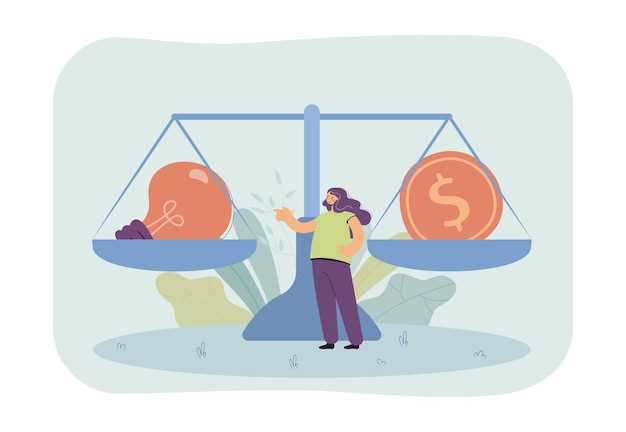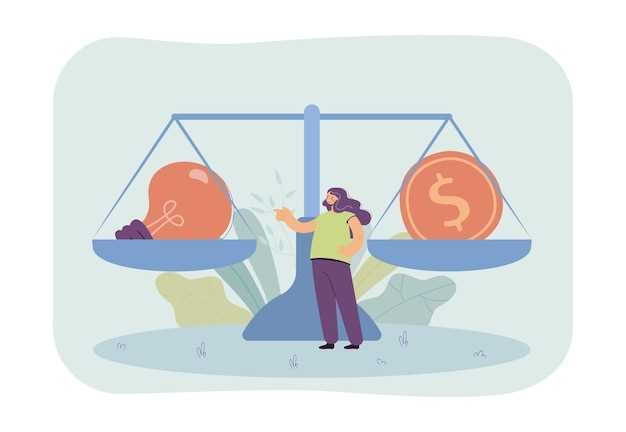
In today’s society, there exists an ongoing battle to ensure that individuals receive a just and adequate salary for their labor. This relentless pursuit for fair remuneration has become a central focus for many activists and organizations worldwide. The quest for a living wage, a term encompassing the idea of earning enough to sustain a decent standard of living, has gained significant traction in recent years.
Advocates argue that a living wage is not merely a matter of economic stability, but a fundamental human right. It is a means to address the growing income inequality that plagues our societies, as well as to combat the cycle of poverty that traps countless individuals and families. By advocating for a livelihood income, these activists aim to create a more equitable and just society, where everyone has the opportunity to thrive and prosper.
The movement for fair compensation has gained momentum as more and more individuals recognize the inherent flaws in our current wage system. It is no longer enough to simply earn a minimum wage that barely covers the basic necessities of life. The fight for a living wage seeks to challenge the status quo and redefine what it means to earn a fair income.
While the concept of a living wage may vary across different regions and industries, the underlying principle remains the same – to ensure that individuals are compensated in a manner that reflects the true value of their work. This means taking into account factors such as the cost of living, inflation, and the ability to meet essential needs such as housing, healthcare, and education. By acknowledging these factors, advocates aim to create a more just and sustainable economic system that benefits all members of society.
Understanding the Concept of a Living Wage
Exploring the Essence of a Sustainable Income
When discussing the notion of a living wage, it is crucial to delve into the fundamental principles that underpin this concept. A living wage represents more than just a fair remuneration for one’s labor; it embodies the idea of providing individuals with a sustainable income that enables them to meet their basic needs and maintain a decent standard of living. This concept goes beyond the mere minimum wage and takes into account factors such as the cost of living, inflation, and the specific circumstances of different regions.
Recognizing the Importance of a Decent Standard of Living
A living wage acknowledges the significance of ensuring that individuals can afford not only the bare necessities of life but also have the means to participate fully in society. It recognizes that a decent standard of living encompasses more than just food, shelter, and clothing. It encompasses the ability to access healthcare, education, transportation, and other essential services that contribute to overall well-being and social inclusion. By advocating for a living wage, we strive to create a society where everyone has the opportunity to thrive and lead a dignified life.
Addressing the Complexity of Determining a Living Wage
Calculating a living wage is a complex task that requires considering various factors and variables. It involves analyzing the cost of housing, utilities, healthcare, transportation, education, and other essential expenses in a specific region. Additionally, it necessitates taking into account the number of dependents and the prevailing economic conditions. By understanding the intricacies involved in determining a living wage, we can better advocate for policies and practices that ensure fair compensation for workers and promote economic justice.
The Impact of Low Wages on Workers and Society
Low wages have far-reaching consequences for both individuals and the broader society. They not only affect the financial well-being of workers but also have significant implications for their physical and mental health, social mobility, and overall quality of life.
When individuals are paid inadequate wages, they often struggle to meet their basic needs, such as housing, food, and healthcare. This financial strain can lead to increased stress, anxiety, and even depression, as individuals constantly worry about making ends meet. Moreover, the lack of financial security can prevent workers from accessing proper healthcare and education, further exacerbating their vulnerability and limiting their opportunities for personal and professional growth.
Low wages also perpetuate a cycle of poverty and inequality within society. When workers are unable to earn a living wage, they are more likely to rely on government assistance programs, placing an additional burden on taxpayers. This not only strains public resources but also hinders economic growth and development. Furthermore, the lack of disposable income among low-wage workers reduces their purchasing power, which in turn affects local businesses and the overall economy.
Additionally, low wages can contribute to social unrest and inequality. When workers feel undervalued and undercompensated, it can lead to feelings of resentment and dissatisfaction. This can manifest in various forms, such as strikes, protests, and labor disputes, as workers demand fairer wages and better working conditions. The resulting conflicts can disrupt industries and create social divisions, highlighting the urgent need for addressing the issue of low wages.
In conclusion, the impact of low wages extends beyond the individual worker, affecting society as a whole. It is crucial to recognize the detrimental effects of inadequate compensation and advocate for fair wages that provide workers with a decent standard of living. By addressing this issue, we can promote social justice, improve overall well-being, and create a more equitable and prosperous society for all.
The Role of Government in Ensuring Equitable Compensation
Government plays a crucial role in establishing and maintaining fair wages for workers across various industries. By implementing policies and regulations, the government aims to create an environment where employees receive just compensation for their labor, ensuring a decent standard of living for all individuals.
One of the primary responsibilities of the government is to set minimum wage laws, which establish the lowest hourly rate that employers must pay their workers. These laws are designed to prevent exploitation and ensure that employees receive a fair wage for their work. Minimum wage laws vary from country to country and are periodically adjusted to account for inflation and changes in the cost of living.
In addition to setting minimum wage laws, the government also plays a role in enforcing compliance with these regulations. Through labor departments and agencies, the government monitors businesses to ensure that they are adhering to minimum wage laws and taking appropriate measures to provide fair compensation to their employees.
Furthermore, the government can incentivize fair wages by offering tax benefits or subsidies to businesses that pay their workers above the minimum wage. By providing these incentives, the government encourages employers to go beyond the legal requirements and provide a living wage that reflects the true value of the work performed.
Another way the government can promote fair wages is by supporting collective bargaining rights for workers. Through labor unions and other representative organizations, employees can negotiate with employers to secure better wages and working conditions. The government can protect and uphold these rights, ensuring that workers have a voice in determining their compensation.
Overall, the government plays a critical role in ensuring fair wages by establishing minimum wage laws, enforcing compliance, providing incentives for higher wages, and supporting collective bargaining rights. By actively participating in the regulation of wages, the government contributes to a more equitable society where individuals are compensated fairly for their labor.
The Challenges Faced by Advocates for a Living Wage
Advocates for a living wage encounter numerous obstacles and difficulties in their pursuit of fair compensation for workers. These challenges stem from various factors and can hinder the progress of their advocacy efforts.
1. Opposition from Businesses and Employers

One of the primary challenges faced by advocates for a living wage is the resistance and opposition from businesses and employers. Many companies argue that implementing a living wage would increase their operational costs and negatively impact their profitability. This opposition often leads to lobbying against policies that would ensure fair wages for workers.
2. Political and Legislative Hurdles
Advocates for a living wage also face significant political and legislative hurdles. The process of enacting laws and policies to establish a living wage can be complex and time-consuming. Political debates, disagreements, and competing priorities can delay or even prevent the implementation of fair wage measures. Additionally, the influence of powerful interest groups and campaign contributions can further complicate the legislative process.
| Challenges | Impact |
|---|---|
| Lobbying by businesses | Delays or prevents the establishment of a living wage |
| Political debates and disagreements | Lengthens the process of implementing fair wage measures |
| Influence of interest groups | Can hinder the progress of advocating for a living wage |
These challenges faced by advocates for a living wage highlight the complexity of the issue and the need for persistent and strategic efforts to overcome them. By addressing the concerns of businesses, engaging in effective lobbying, and mobilizing public support, advocates can work towards achieving fair wages for all workers.
Success Stories: Cities and Companies Implementing Living Wage Policies
In this section, we will explore the inspiring success stories of various cities and companies that have taken the initiative to implement living wage policies. These stories highlight the positive impact of fair wages on both employees and the overall economy, showcasing the power of advocating for a living wage.
1. City Initiatives
Many cities around the world have recognized the importance of ensuring fair wages for their residents. Through the implementation of living wage policies, these cities have witnessed significant improvements in the quality of life for their workers. For example, City X increased its minimum wage to a living wage, resulting in a decrease in poverty rates and an increase in disposable income for its residents. This success story serves as a model for other cities looking to address income inequality and promote economic growth.
2. Company Efforts
Companies play a crucial role in advocating for fair wages and creating a more equitable society. Several notable companies have taken the lead in implementing living wage policies for their employees. Company Y, a global retail giant, made headlines when it announced that it would pay all its employees a living wage, regardless of their job position. This decision not only improved employee morale and loyalty but also attracted top talent, leading to increased productivity and profitability. The success of Company Y’s living wage policy has inspired other companies to follow suit, creating a ripple effect in the business world.
Furthermore, Company Z, a local small business, also implemented a living wage policy for its employees. Despite initial concerns about the potential impact on profitability, the company experienced unexpected benefits. By paying fair wages, Company Z saw a decrease in turnover rates, an increase in employee satisfaction, and a boost in customer loyalty. This success story demonstrates that even small businesses can make a significant difference by prioritizing fair wages.
These success stories highlight the transformative power of living wage policies. By advocating for fair wages, both cities and companies can create a more just and prosperous society, where workers are valued and economic inequality is reduced.
The Future of the Battle for Equitable Compensation: Strategies and Objectives
In this section, we will explore the future prospects and aspirations of the ongoing endeavor to ensure just remuneration for all individuals. By examining emerging strategies and goals, we aim to shed light on the evolving landscape of the fight for equitable compensation.
1. Embracing Collective Bargaining

One key strategy for advancing the cause of fair wages is the continued emphasis on collective bargaining. By empowering workers to negotiate as a unified force, this approach seeks to address the power imbalance between employees and employers. Through collective bargaining, workers can advocate for improved wages, benefits, and working conditions, fostering a more equitable labor market.
2. Leveraging Technological Innovations
As we look to the future, it is crucial to recognize the potential of technological advancements in shaping the fight for fair wages. The utilization of digital platforms and data analytics can provide valuable insights into wage disparities and help identify industries or regions where inequities persist. By harnessing technology, advocates can target their efforts more effectively and advocate for change in areas where it is most needed.
Moreover, technological innovations can facilitate the dissemination of information and the mobilization of workers. Online platforms and social media networks offer opportunities to raise awareness about wage inequality, connect individuals with similar concerns, and amplify the collective voice demanding fair compensation.
While these strategies hold promise, it is essential to remain mindful of the broader objectives that underpin the fight for equitable compensation. The ultimate goal is not merely to secure a living wage for all individuals but to create a society where work is valued and rewarded fairly. This requires addressing systemic issues such as gender and racial disparities, promoting equal opportunities, and fostering a culture of respect and dignity in the workplace.
As we navigate the future, it is crucial to remain steadfast in our commitment to the fight for fair wages. By embracing collective bargaining, leveraging technological innovations, and staying focused on our broader objectives, we can pave the way for a more just and equitable future for workers worldwide.



